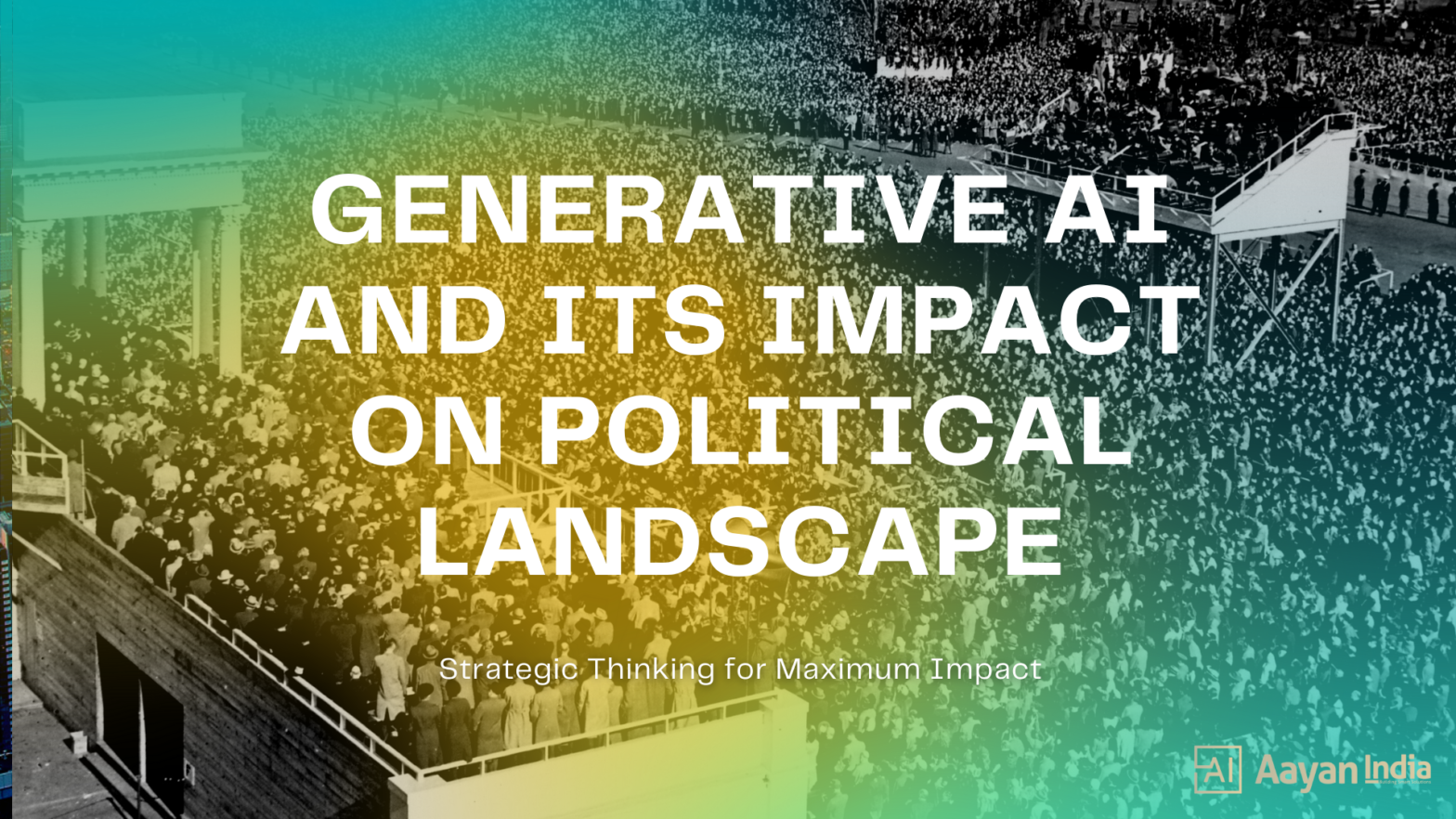As the Founder and CEO of Aayan India, a global IT company, you’re undoubtedly familiar with the rapid advancements in technology that are shaping industries across the world. In recent years, one technology that has been making significant waves is Generative Artificial Intelligence (AI), and its influence is not limited to business and innovation. It’s seeping into unexpected realms, including politics, and this phenomenon has far-reaching implications, especially for someone like you, who’s young and dynamic, running a tech company across multiple countries.
The Rise of AI in Politics
AI-generated content has proven its potential across various domains, from art to entertainment, and even to creating realistic text that’s difficult to distinguish from human writing. However, its influence has extended to politics in ways that demand attention. Take, for instance, the upcoming 2024 election campaigns. It’s been reported that AI-generated text is becoming increasingly challenging to identify, making it a potent tool for those seeking to sway public opinion.
This isn’t a theoretical concern – it’s already happening. The 2024 campaign has seen instances where AI-generated images and text have been used to create misleading narratives. Presidential candidate Ron Desantis’s campaign, for example, shared manipulated images of prominent figures created using AI. This blurs the line between fact and fiction, opening doors to misinformation and confusion.

The Power of AI-Generated Content
Generative AI, fueled by large language models like ChatGPT, holds immense potential. It can generate text that’s virtually indistinguishable from human writing. This raises concerns about the spread of falsehoods, especially in an age where online information dissemination plays a pivotal role in shaping public opinion. Researchers have found that AI-generated text has the power to sway opinions just as effectively as real examples of propaganda from foreign actors.
The technology operates like a powerful autocomplete algorithm, piecing together text from vast amounts of human-written content. This means AI-generated content is not confined to a particular subject matter. It can fabricate news headlines, stories, and even entire narratives. The implications for political campaigns are profound.

The Vulnerability of the Democratic Process
With AI-generated content becoming harder to discern, the democratic process faces new challenges. The 2024 campaign might witness a surge in campaigns that use AI to craft messages tailored to different target audiences. This approach could potentially lead to a fragmented and polarized political landscape, where voters are exposed to carefully tailored content that reinforces their preconceived notions.
Additionally, AI-generated content has shown its ability to bypass traditional detection methods, such as watermarking, making it difficult to identify and counteract. The technology’s economic feasibility adds another layer of complexity. AI-generated content doesn’t need to be perfect to be effective; it just needs to be faster and cheaper than creating content manually. This creates a landscape where misinformation campaigns become financially viable, particularly for entities with the resources to maximize output while minimizing costs.

The Future of Political Communication
For someone like you, who operates in the tech industry and understands the potential of AI, this presents both challenges and opportunities. As campaigns become more technology-driven, the line between authentic communication and AI-generated narratives could blur further. The ease with which AI can create content tailored to specific demographics might revolutionize political messaging – and not necessarily for the better.
However, this also underscores the importance of ethics and responsibility in technology development. As someone who heads a global IT company, you have the potential to influence how AI is used in various sectors, including politics. Ensuring that the power of AI is harnessed for positive and transparent purposes should be a key consideration.

Conclusion
Generative AI’s influence in politics is a topic that bridges the gap between your expertise as the CEO of a global IT company and your role as an engaged citizen in your country’s political landscape.


As AI continues to advance, it’s essential for industry leaders like you to be cognizant of its potential consequences. The rise of AI-generated content in politics demands a thoughtful approach that balances technological innovation with ethical considerations, ensuring that the democratic process remains robust and resilient in the face of evolving challenges.








